
Daniel Gilligan
Director, Poverty, Gender, and Inclusion (PGI), Poverty,
Gender, and Inclusion

Back
With research staff from more than 60 countries, and offices across the globe, IFPRI provides research-based policy solutions to sustainably reduce poverty and end hunger and malnutrition in developing countries.

researcher spotlight
Carlo Azzarri is a Senior Research Fellow in the Innovation Policy and Scaling Unit. His work focuses on the relationships among poverty, nutrition, food security, agriculture, the environment, production, and migration—analyzed at both micro and macroeconomic levels, primarily using quantitative methods.

Back
Since 1975, IFPRI’s research has been informing policies and development programs to improve food security, nutrition, and livelihoods around the world.

Back
IFPRI currently has more than 600 employees working in over 80 countries with a wide range of local, national, and international partners.
Good nutrition is key to human well-being. Far too many people around the world are affected by malnutrition ranging from undernutrition to problems of overweight, obesity, and diet-related noncommunicable diseases. Improving nutrition requires contributions not only from the health sector but also from sectors as diverse as agriculture, social protection, gender, and education, which together can address the underlying causes of malnutrition.
IFPRI’s nutrition research aims to generate rigorous evidence on what works—and what does not—to prevent malnutrition in low- and middle-income countries. IFPRI’s nutrition research expertise covers nutrition and dietary assessment; infant and young child nutrition; adolescent nutrition; maternal nutrition; and school-based and other multisectoral nutrition programs.
IFPRI is proud of the strong relationships it has built with program implementers, national health and nutrition institutions, policymakers, and other academics, which help us deliver high-quality research and evidence-based advice. Recognizing the multisectoral nature of malnutrition, IFPRI’s nutrition research aligns closely with work on food systems, health, social protection, education and child development, and gender.
IFPRI’s research on this topic is closely aligned with the Sustainable Development Goals (SDGs), including SDG2, SDG3, SDG4, and SDG6, and the CGIAR Impact Areas on Nutrition, Health, and Food Security; Poverty Reduction, Livelihoods and Jobs, and Gender Equality, Youth, and Social Inclusion.
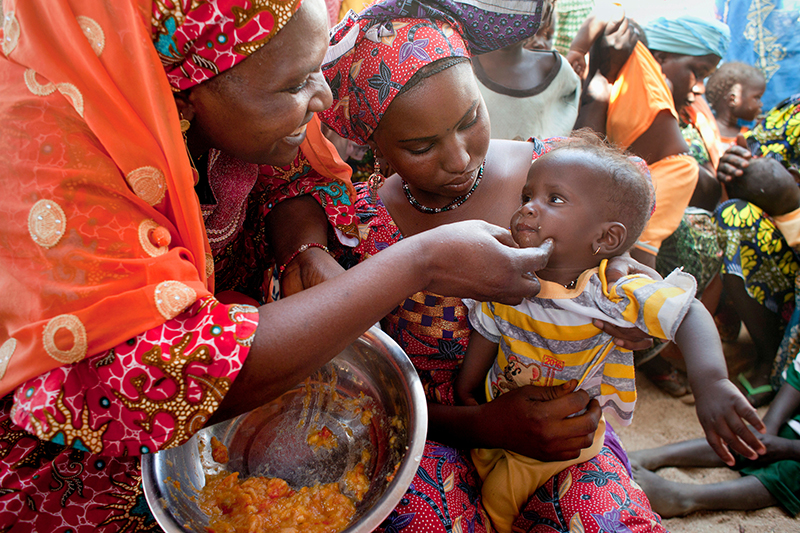

Journal Article

Journal Article
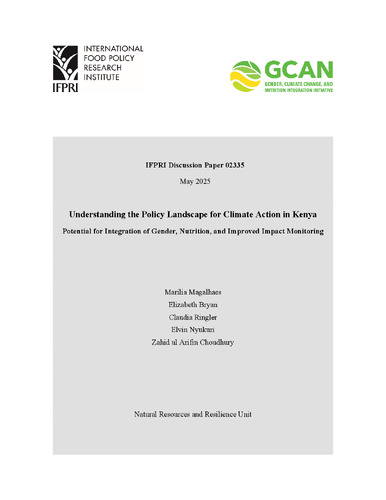
Working Paper
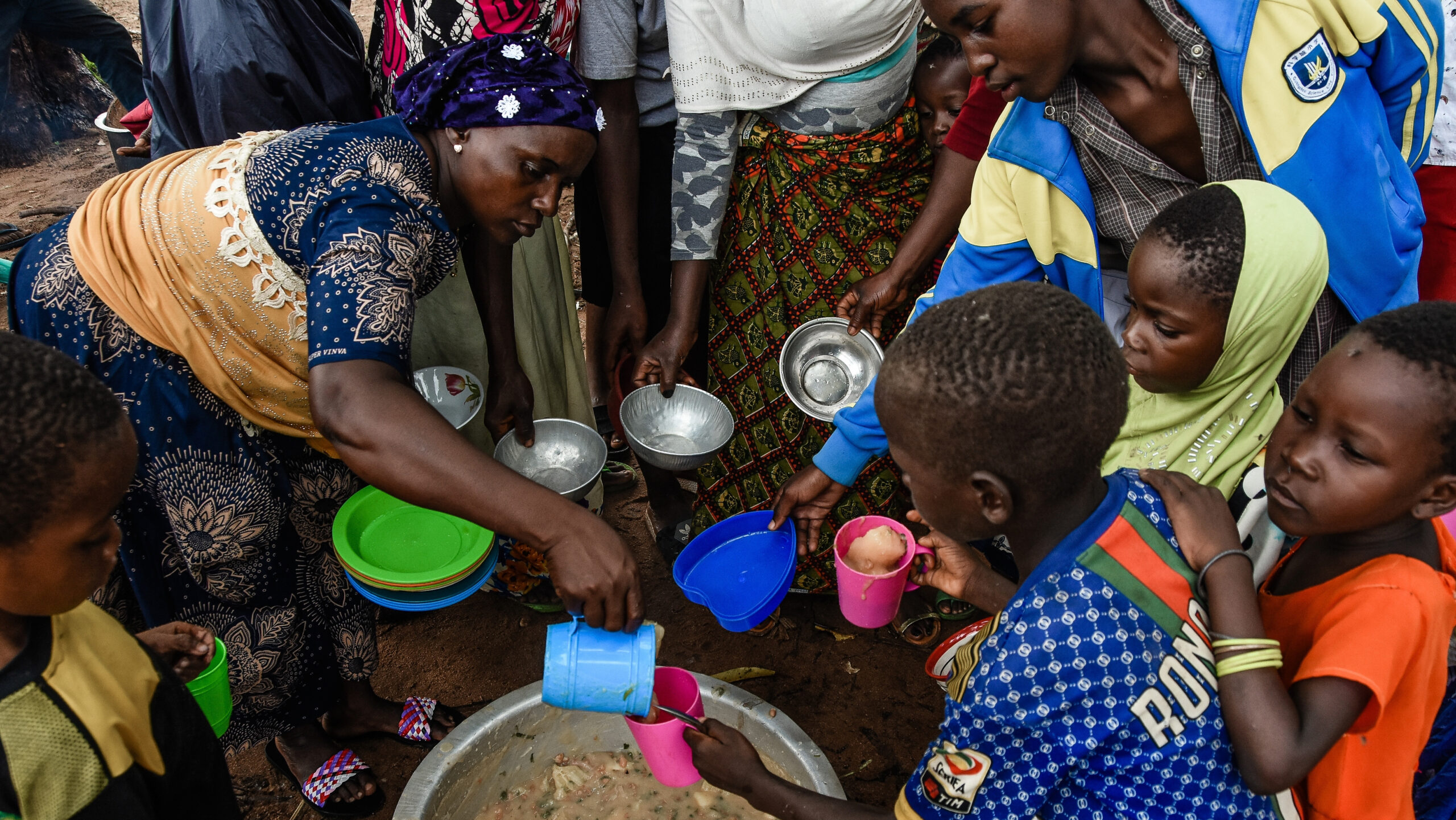
Representatives of major organizations grapple with our current predicament.

A study shows the influence of social media.

A study finds problems with completeness, consistency, and timeliness.

IFPRI is pleased to participate in the Fourth International Conference on Financing for Development (FFD4). This conference provides a unique opportunity to reform financing at all levels, including to support reform of the international financial architecture and addressing financing challenges preventing the urgently needed investment push for the SDGs. FFD4 Conference will be held in […]
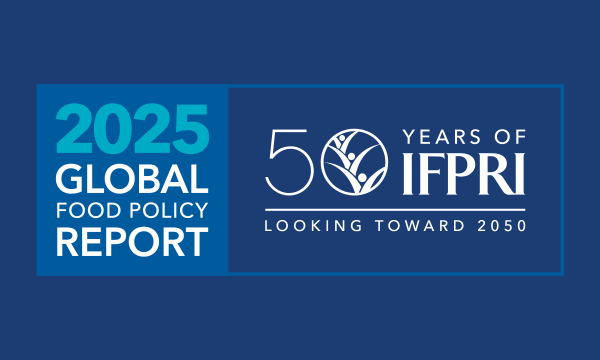
Also streaming on Over the last 50 years, the world’s food systems have evolved tremendously amid major economic, environmental, and social changes. Throughout this period, policy research has played a critical role in providing evidence and analysis to inform decision-making that supports agricultural growth, better livelihoods, and improved food security, nutrition, and well-being for all. […]
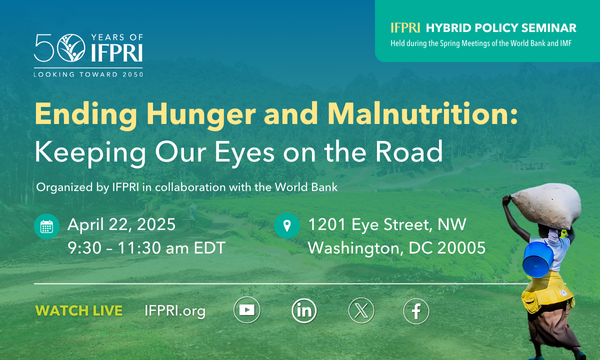
While global agricultural commodity prices have come down from the high levels seen in recent years, the world remains far off track in meeting the SDG2 of ending hunger and malnutrition by 2030. Last year, close to 300 million people faced food crisis while the number of people on the cusp of famine doubled. Efforts […]
A new study published in Advances in Nutrition critically examines the effectiveness of Growth Monitoring and Promotion (GMP) in diagnosing or screening for inadequate growth in children.
School meal programs don’t just ensure children go to school and stay fed — they are a powerful force for change in communities and food systems worldwide. According to the results of the latest Global Survey of School Meal Programs© conducted by Global Child Nutrition Foundation (GCNF), school meal programs can increase demand for nutritious […]
The partnership includes the International Food Policy Research Institute (IFPRI) as the global research partner.

Director, Poverty, Gender, and Inclusion (PGI), Poverty,
Gender, and Inclusion

Director, Nutrition, Diets, and Health (NDH), Nutrition,
Diets, and Health

Associate Research Fellow, Innovation
Policy and Scaling

Research Analyst, Development
Strategies and Governance

Research Analyst, Natural
Resources and Resilience

Senior Research Fellow, Nutrition,
Diets, and Health

Senior Research Fellow, Nutrition,
Diets, and Health

Scaling Specialist, Innovation
Policy and Scaling

Senior Program Manager, Poverty,
Gender, and Inclusion

Program Manager, Innovation
Policy and Scaling

Nonresident Senior Fellow, Nutrition,
Diets, and Health